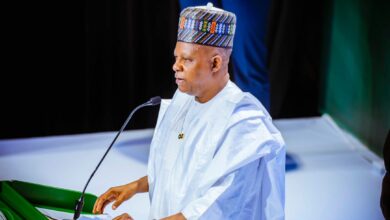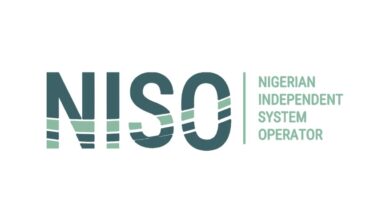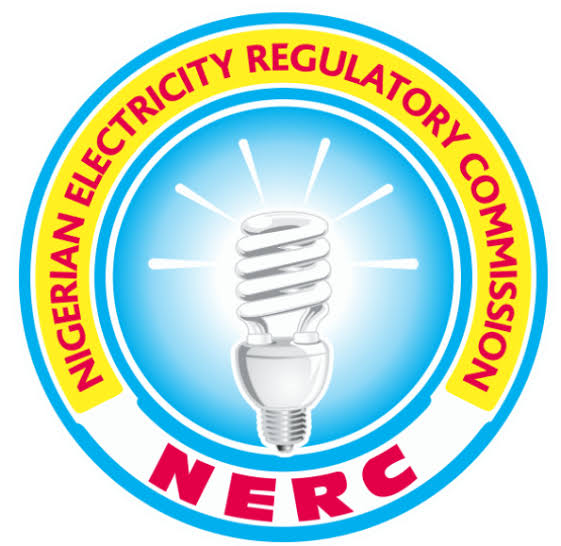Epileptic Power Supply: GenCos, NBET Disagree Over Alleged N1.6trn Unsettled Invoices

The Association of Power Generation Companies (APGC) and the Nigerian Bulk Electricity Trading Plc (NBET) are having a ruffle feathers over non-payment of unutilized capacity to the tune of over N1.6 trillion.
APGC’s Executive Secretary, Dr. (Mrs) Joy Ogaji in a Press Briefing, Sunday, March 13, 2022 in Abuja, said, illiquidity, caused by the huge sums owed GenCos by the NBET, non-availability of Foreign Exchange (FX) for maintenance and inefficient Management of grid by the Transmission Company of Nigeria (TCN) were responsible for the current epileptic power supply in the country.
TheFact Nigeria reports that Dr. Ogaji lamented that, apart from the challenges posed by the NBET debts, the grid was not being properly managed, adding that Thermal power plants were supposed to be performing optimally if the hydro power plants were undergoing routine maintenance.
The GenCos’ reaction was in respect to the publication by the TCN on the 8th day of March 2022, carried in some national dailies and social media platforms, ascribing low power generation to GenCos inability or refusal to generate power.
In the publication, TCN sought to absolve itself of any responsibility from the ongoing shortage of power supply in the country.
The APGC’s spokesperson said, the blame game would not help the sector, therefore, efforts should be channelled by all and sundry to properly fix the sector.
The Association said, currently, it’s generating 4,000 Mega Watts, disclosing that most of it’s generating units were down due to gas constraint and foreign exchange (FX) for maintenance of power plants.
It said, with Gas availability, FX for maintenance, and TCN’s willingness to take, it’s capable of generating about 9,000 Mega Watts.
“Illiquidity, caused by the huge sums owed GenCos by the Nigerian Bulk Electricity Trading Plc (NBET), has more than ever before continued to frustrate the GenCos and kept them incapable of meeting their obligations which are extremely necessary to keep their power plants running and make capacities available, while observing required Health, Safety and Environment (HSE) standards.
“Such obligations include our operations and maintenance (O&M) as and when due, procurement of critical capital, spare parts and accessories, payment, and servicing of existing loans from lenders and financiers, employee- obligations, etc. Recently, GenCos cried out to the authorities and are still looking forward to a favourable consideration of their pleas for foreign exchange (FX) support to enable them to procure critical spares for their turbines and equipment to keep them in good state of repair. This is in addition to the FX challenges faced by the Hydros, whose concession fees are dollarized.
“Most of the electricity generated in Nigeria, about 80%, come from gas-fired turbines. Natural gas is the feedstock or fuel of these plants. GenCos have consistently been dealing with unending gas-related challenges which inhibit optimal generation.
“Issues of gas volume, gas quality, gas pressure and gas transportation have consistently curtailed capacity utilization by GenCos thereby affecting generation. These issues need to be addressed and urgently too, as the GenCos have always requested.
“Unfortunately, the unenforceable state of the contracts in the NESI and the broken cycle of payment assurance has made the enforcement of what would ordinarily be basic obligations of parties to the industry agreements, impossible”, she said.
The Association said, since 2013 when the power sector was partially privatized till date, weak and inadequate infrastructure (transmission and distribution) have continued to render inconsequential, a significant portion of the generation capacities recovered or added by GenCos through huge investments done by them to increase their respective generation capacities.
“While the owners of the GenCos invested committedly and increased generation capacity up to 13,000MW across the country, no corresponding investment and improvement was made at the transmission and distribution ends.
“The result was the significant stranded capacity of GenCos, which ironically, Nigerians are in dire need of but cannot get. Given that capacity utilization in any market, is often used as a measure of productive efficiency and decisions about investments in power generating capacity depend on expected returns and costs.
“The persistence of this anomaly over these years, compelled GenCos to begin to question the commercial reasonability of continued investment in recovery or expansion of generation capacity that would end up being stranded and not utilized to transmit and distribute electricity to end users who are yearning for same”, the association said.
In a swift reaction, NBET disputed the figures quoted by the GenCos, saying only companies with active gas supply and transportation contracts were paid for unutilized capacity.
The Head Corporate Communication, NBET, Henrietta Ighomrore explained that in the country only five power generation companies with active Gas Purchase Agreement were paid for unused capacity.
“NBET makes payment to GENCOS as at when due and has never defaulted on any payment cycle till date. The percentage payment made to GENCOS has continually been on the increase, with the 701.9 billion PAF payment which ensured a minimum of 80% of Gencos invoices for year 2018 and 2019, as well as the 2nd PAf of 600 billion that ensured an average of 95% payment of Gencos invoices for 2020.
“Also with the current PSRO program that caters for Tariff shortfall, GENCOS have continued to receive over 90% Payment of their generating invoices for the 2021 payment cycle.
“Market settlement is done based on the Final Settlement Statement (FSS) issued by the Market Operator. Once the FSS is issued to market participants, the Gencos send their invoices to NBET, and NBET has a period of 15-20 working days to settle Gencos invoices.
“Two weeks ago, we made the payment of over N38 billion to Gencos for the December 2021 payment cycle. We are current in the process of making additional payment based on the disbursement approval from the PSRO towards tariff shortfall.
“NBET is committed to ensuring timely and efficient payment to the Gencos leveraging the support of the Federal Government and the World Bank who are the promoters of the PSRO program. Since the introduction of PAF in 2018, Gencos have continued to receive over 80% of their invoices till date”, NBET said.






